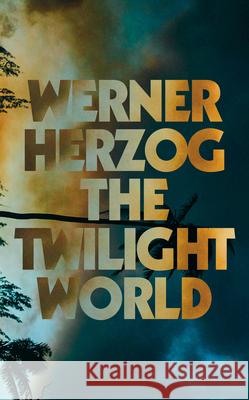The Twilight World » książka
topmenu
The Twilight World
ISBN-13: 9780593490266 / Angielski / Twarda / 2022 / 144 str.
The Twilight World
ISBN-13: 9780593490266 / Angielski / Twarda / 2022 / 144 str.
cena 110,04
(netto: 104,80 VAT: 5%)
Najniższa cena z 30 dni: 109,78
(netto: 104,80 VAT: 5%)
Najniższa cena z 30 dni: 109,78
Termin realizacji zamówienia:
ok. 10-14 dni roboczych.
ok. 10-14 dni roboczych.
Darmowa dostawa!
Kategorie:
Kategorie BISAC:
Wydawca:
Penguin Press
Język:
Angielski
ISBN-13:
9780593490266
Rok wydania:
2022
Ilość stron:
144
Waga:
0.56 kg
Oprawa:
Twarda
Wolumenów:
01











